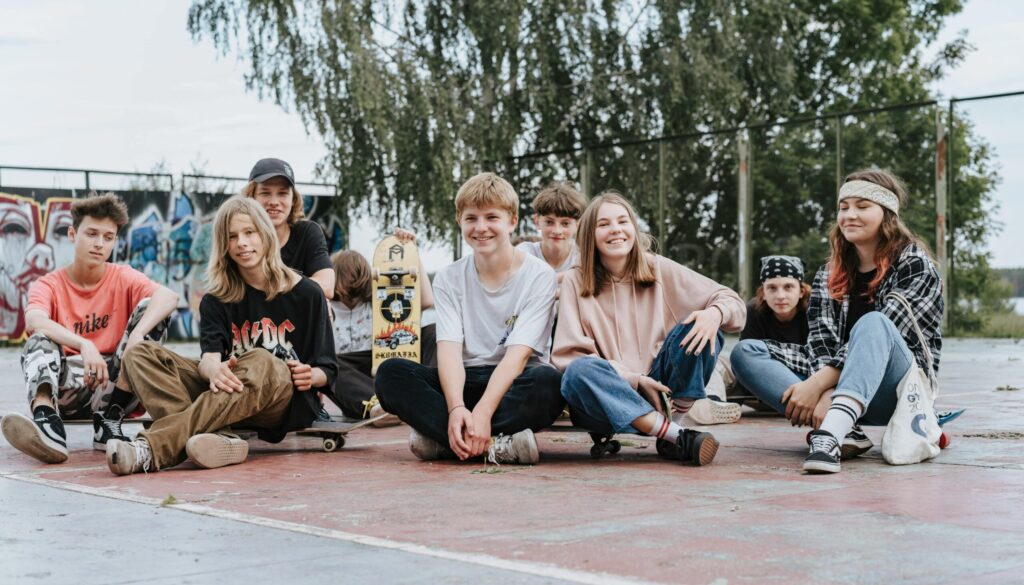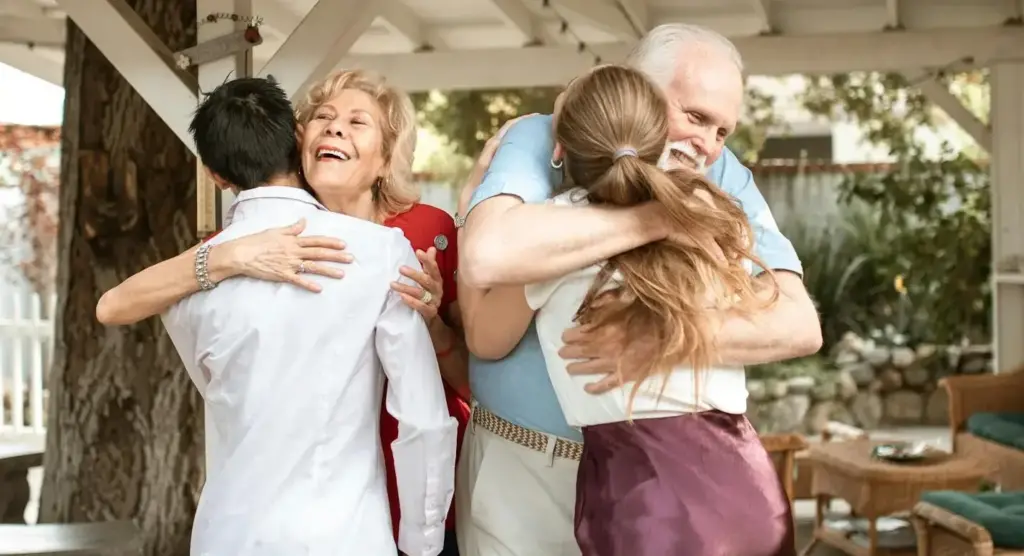

It is common for us to relate to people our own age, with whom we share similar interests and experiences. However, do you remember when you were little and your grandmother would tell you amazing stories about her youth? Or maybe you remember teaching your grandfather how to use a smartphone? Those special moments are the essence of intergenerational relationships– and they’re more important than you think!
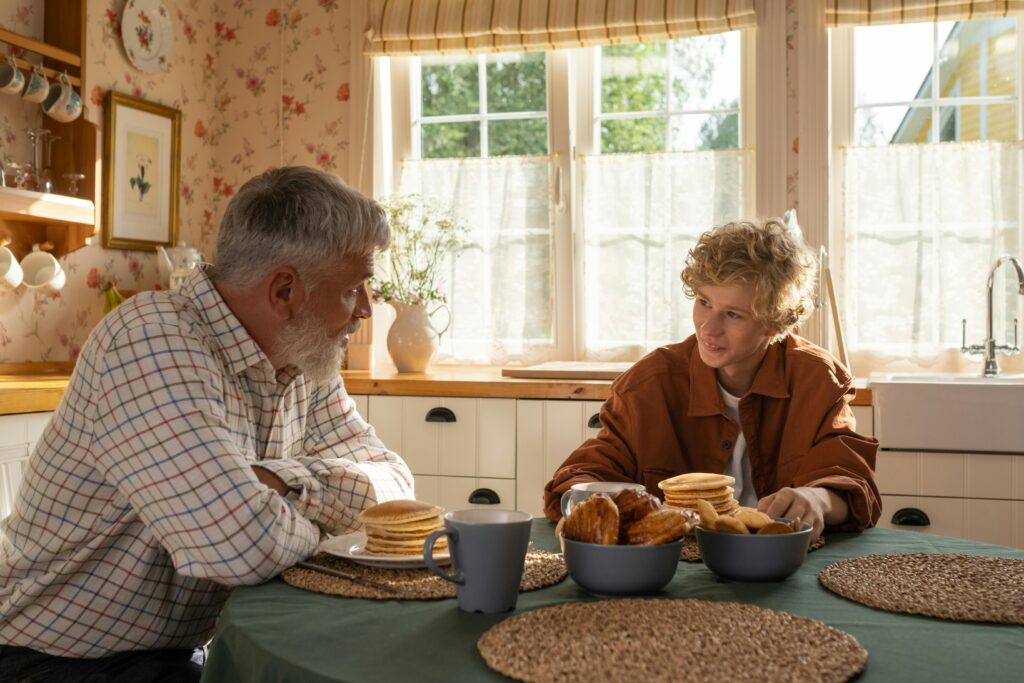
Why are intergenerational relationships so great?
Because they enrich us all. Young people learn from the wisdom and experience of elders, while older adults feel more connected and valued. It’s a win-win!
Benefits of intergenerational relationships for seniors
–Active mind: Interacting with young people stimulates the mind, keeping cognitive skills sharp and preventing mental decline associated with aging.
Increasedself-esteem: Feeling valued and useful by sharing knowledge and experiences with the younger generation boosts self-esteem and confidence.
–Support network: Intergenerational relationships create a social support network that combats loneliness and isolation, so common in old age.
–Active aging: Participating in activities with young people promotes an active and healthy lifestyle, delaying the effects of aging.
-Sense ofbelonging: Feeling part of a larger community, older adults experience a greater sense of well-being and purpose.
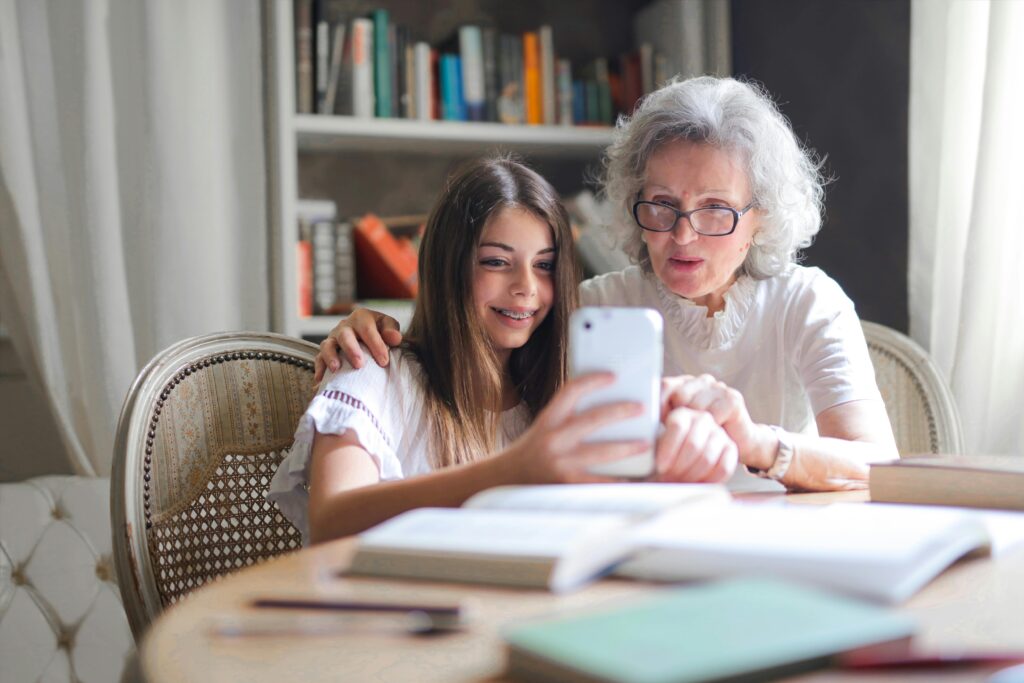
Benefits of Intergenerational Relationships for Young People
-Wisdomand experience: Young people can learn from the wisdom and experience of older people, gaining a broader perspective on life.
-Empathyand understanding: By interacting with people from different generations, young people develop greater empathy and understanding for the needs of others.
–Social responsibility: Contact with older people fosters a sense of social responsibility and a desire to contribute to their community.
-Valuesand traditions: Young people can learn about values, traditions and customs of the past, enriching their own identity.
–Social skills: Intergenerational relationships help develop social skills such as communication, active listening and conflict resolution.
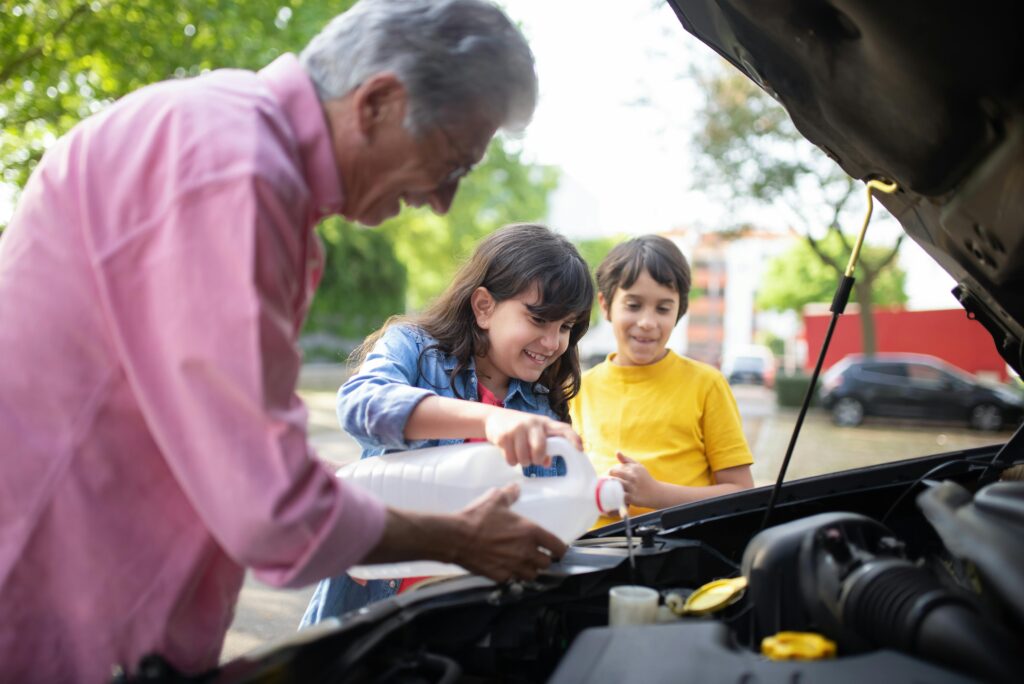
Breaking Barriers and Building Bridges
Intergenerational relationships not only benefit those who participate in them, but also strengthen social ties and foster a more inclusive and equitable society. By breaking down stereotypes and prejudices, these connections allow us to appreciate human diversity and build a more united future.
Examples of Intergenerational Programs in the World
Throughout the world, various programs have demonstrated the benefits of intergenerational relationships. Some outstanding examples are:
Senior Companions (USA)
Imagine a senior living alone and feeling a bit lonely. Senior Companions connects this person with an adult volunteer who shares his or her interests and can offer companionship, emotional support and help with simple tasks such as grocery shopping or meal preparation. This connection not only combats loneliness, but also strengthens the bond between adults and seniors and creates a sense of community.
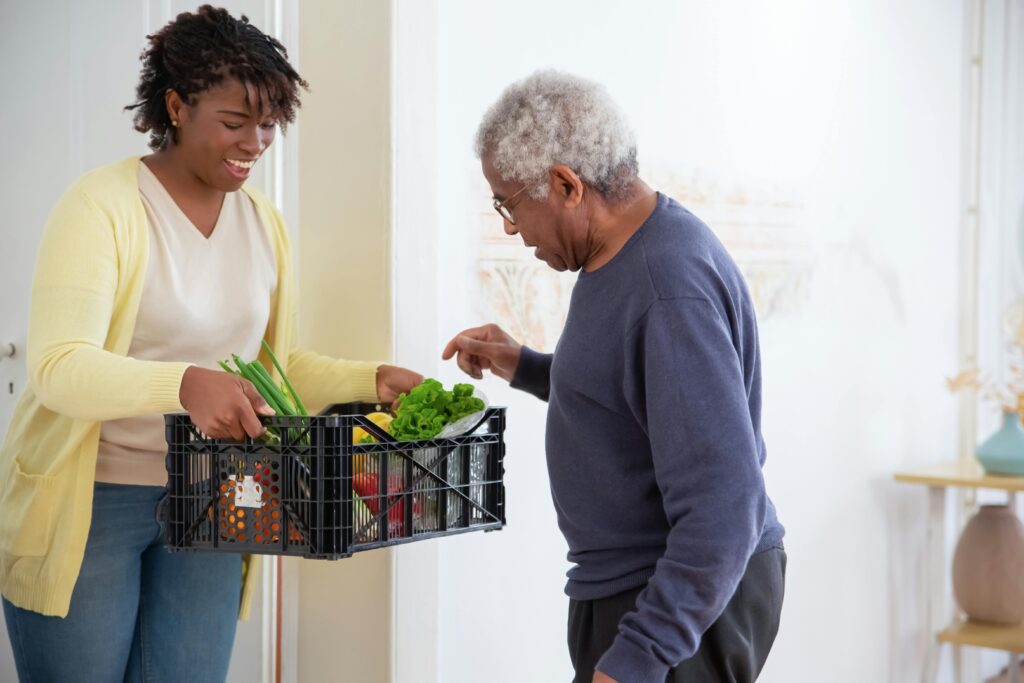
Intergenerational Learning (Australia)
In this program “Intergenerational LearningIn this “Intergenerational Learning” program, schools and nursing homes become shared learning spaces. Students visit residents for activities such as art workshops, board games, or simply conversation.
Memories of the neighborhood (The Netherlands)
Have you ever wondered what life was like in your neighborhood 50 years ago? The “Neighborhood Memories” program in the Netherlands invites young and old to work together to rescue and preserve the history of their communities. Through interviews, collection of photographs and objects, creating a historical archive that strengthens the identity of the community.
Singapore
In Singapore, they go a step further and have created spaces where children, youth and seniors live and learn together. Schools, day care centers and day care centers share the same space, encouraging interaction and mutual learning.
Grandparents readers
In many countries, programs are organized where volunteer grandparents read stories to children in schools, libraries or kindergartens. This not only fosters a love of reading in children, but also gives grandparents the opportunity to share their experiences and knowledge.
Cultural exchanges in families
Family cultural exchanges offer a unique opportunity to enrich intergenerational relationships and foster intercultural communication. By sharing daily life with a family from another country, young people not only learn a new language and customs, but also establish deep bonds with people of different ages and backgrounds. This enriching experience allows older adults to share their knowledge and wisdom, creating intergenerational connections that transcend cultural barriers.





